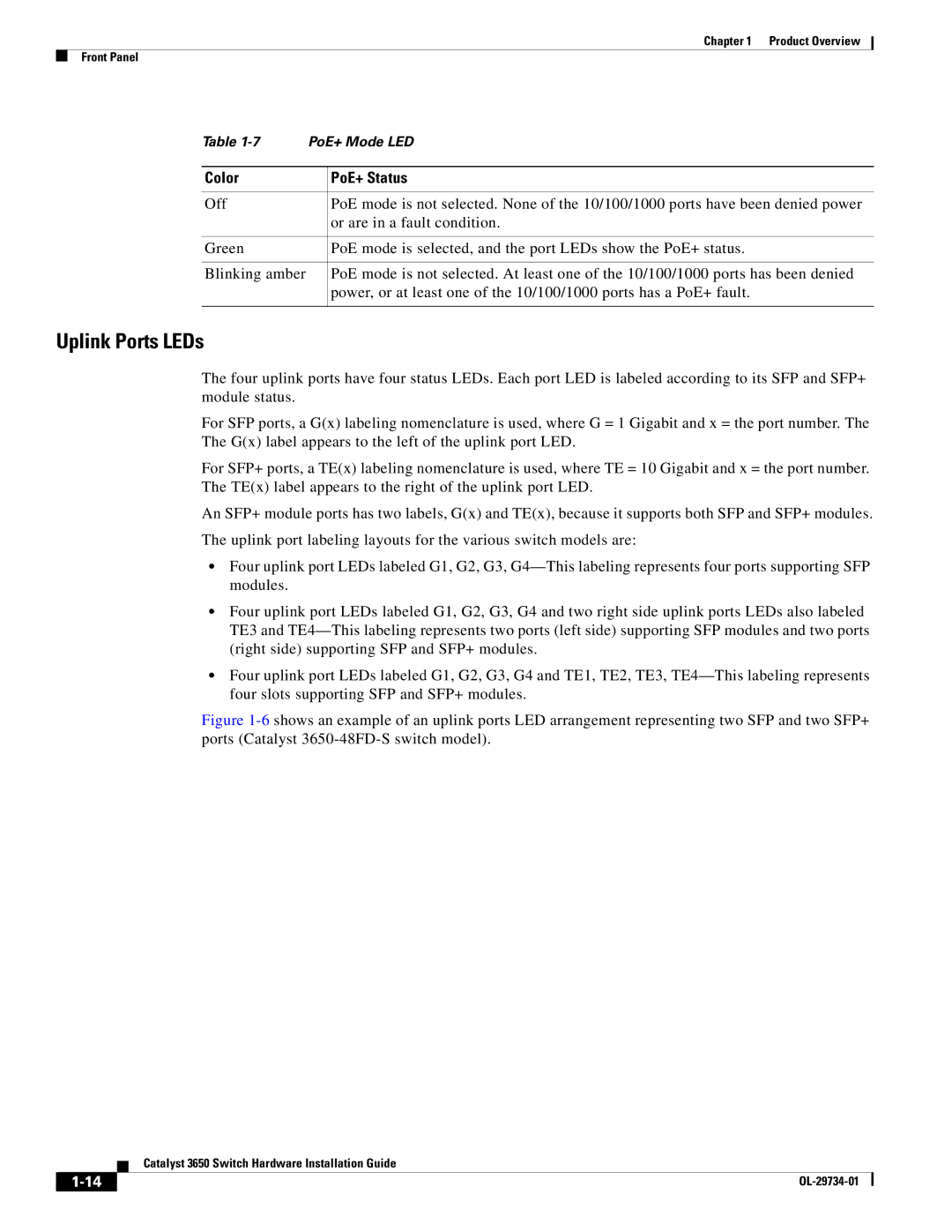
Chapter 1 Product Overview
Front Panel
Table | PoE+ Mode LED | |
|
|
|
Color |
| PoE+ Status |
|
|
|
Off |
| PoE mode is not selected. None of the 10/100/1000 ports have been denied power |
|
| or are in a fault condition. |
|
|
|
Green |
| PoE mode is selected, and the port LEDs show the PoE+ status. |
|
|
|
Blinking amber |
| PoE mode is not selected. At least one of the 10/100/1000 ports has been denied |
|
| power, or at least one of the 10/100/1000 ports has a PoE+ fault. |
|
|
|
Uplink Ports LEDs
The four uplink ports have four status LEDs. Each port LED is labeled according to its SFP and SFP+ module status.
For SFP ports, a G(x) labeling nomenclature is used, where G = 1 Gigabit and x = the port number. The The G(x) label appears to the left of the uplink port LED.
For SFP+ ports, a TE(x) labeling nomenclature is used, where TE = 10 Gigabit and x = the port number. The TE(x) label appears to the right of the uplink port LED.
An SFP+ module ports has two labels, G(x) and TE(x), because it supports both SFP and SFP+ modules. The uplink port labeling layouts for the various switch models are:
•Four uplink port LEDs labeled G1, G2, G3,
•Four uplink port LEDs labeled G1, G2, G3, G4 and two right side uplink ports LEDs also labeled TE3 and
•Four uplink port LEDs labeled G1, G2, G3, G4 and TE1, TE2, TE3,
Figure 1-6 shows an example of an uplink ports LED arrangement representing two SFP and two SFP+ ports (Catalyst 3650-48FD-S switch model).
| Catalyst 3650 Switch Hardware Installation Guide |
